Apple Watch Series 10 Hands On: Lots of screen on your wrist
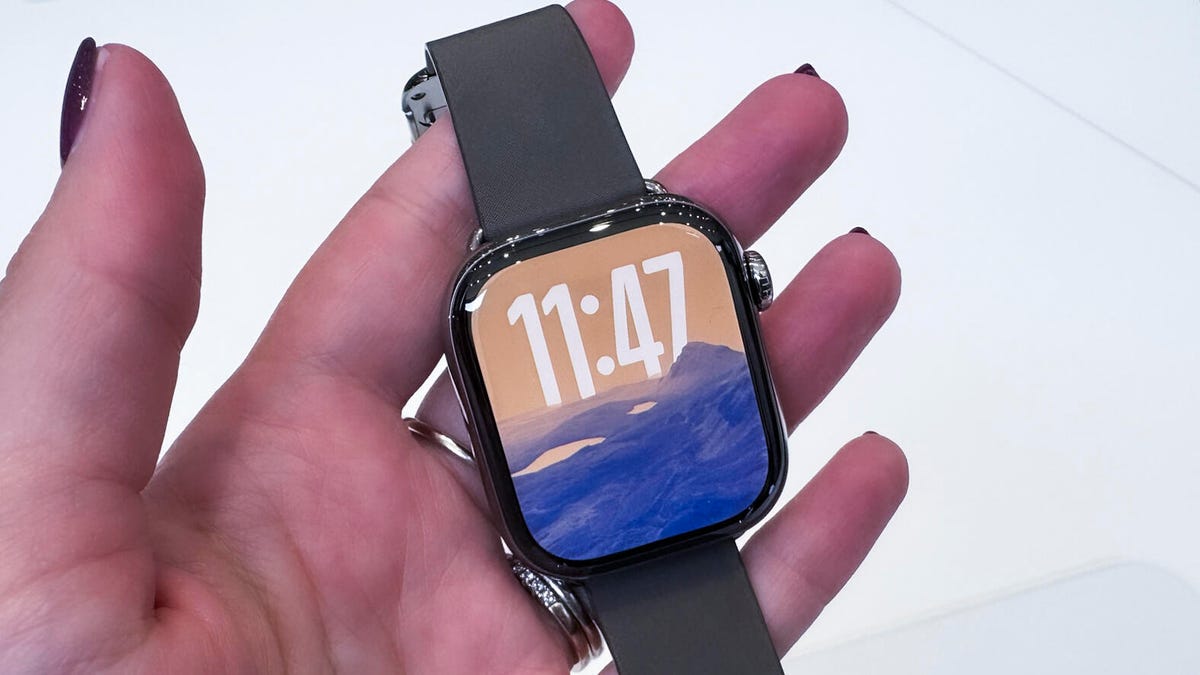
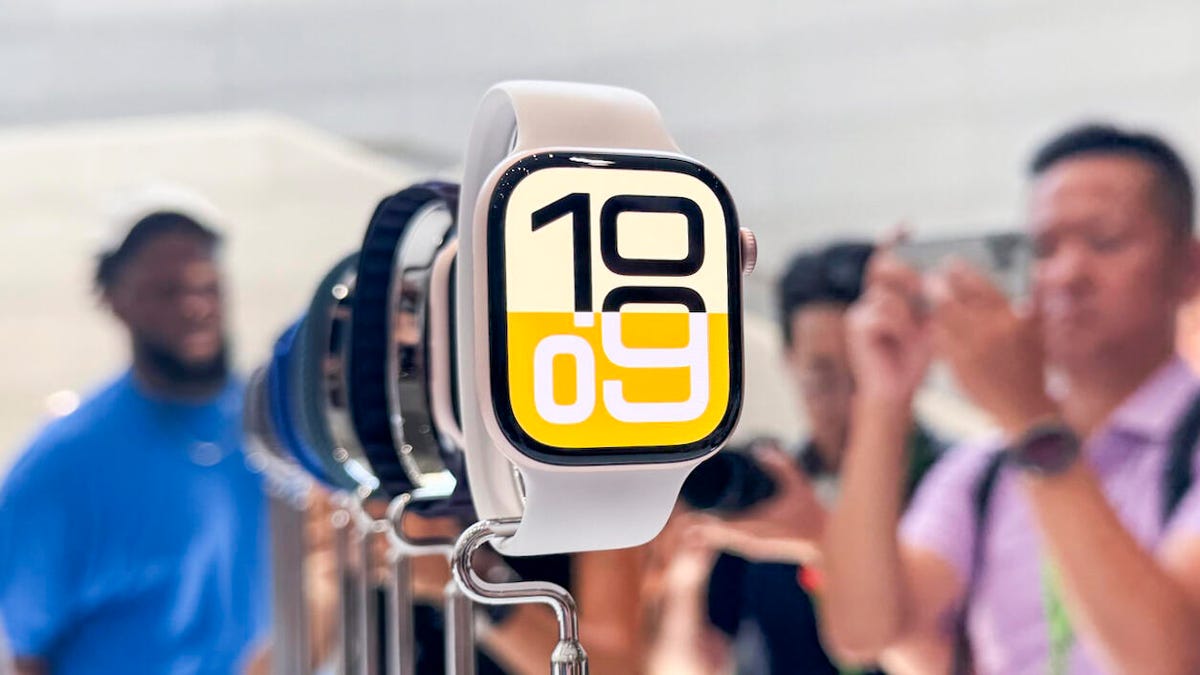
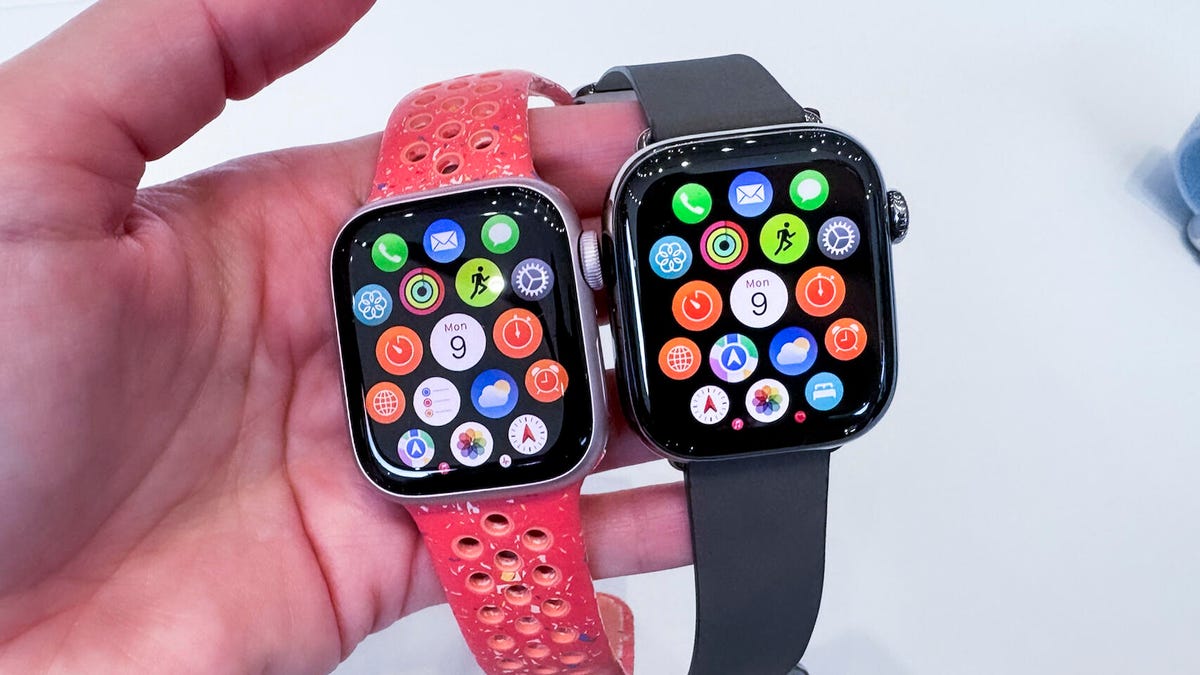
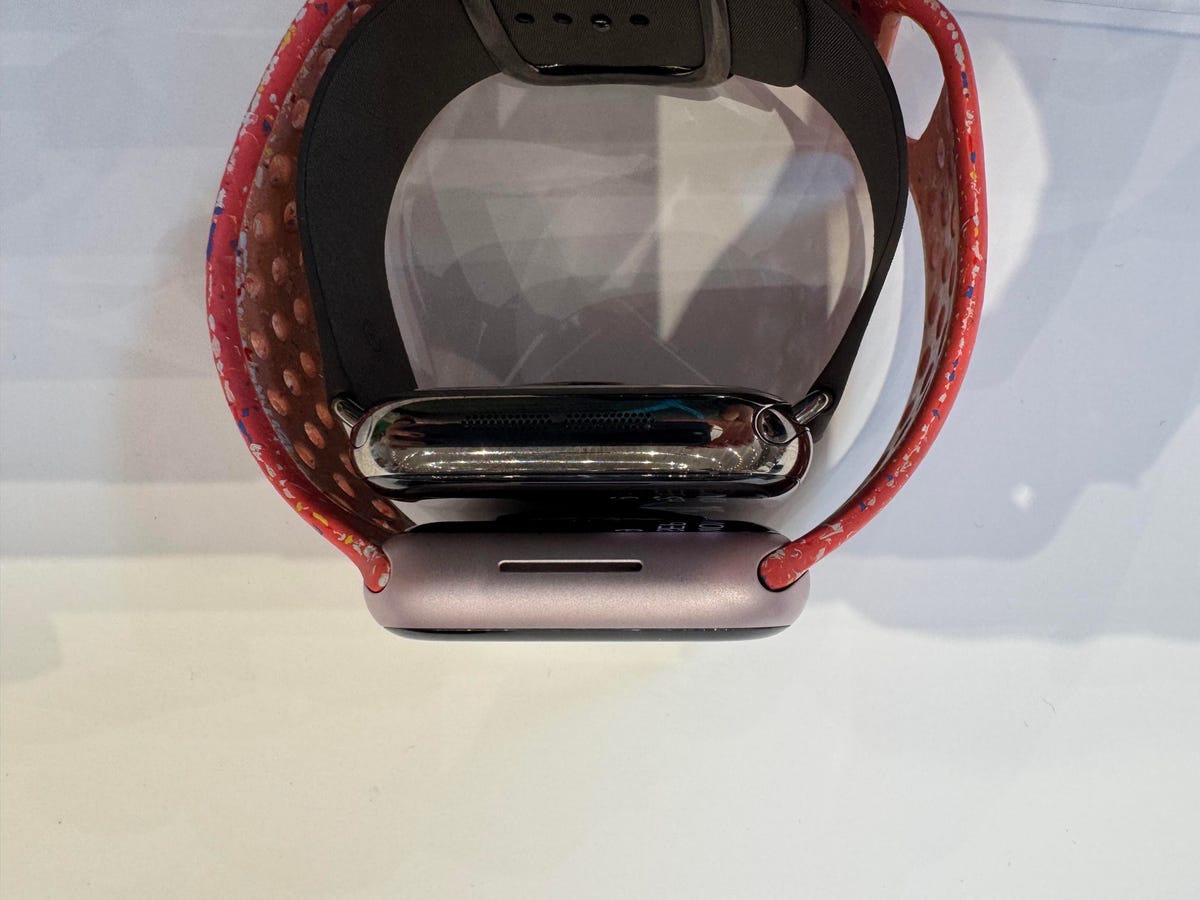
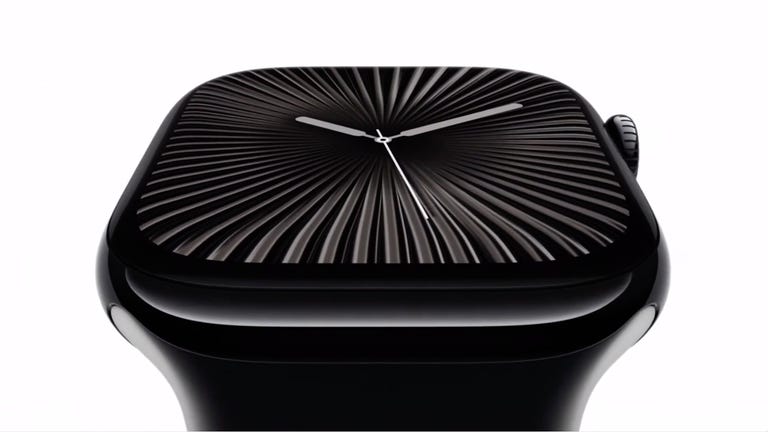
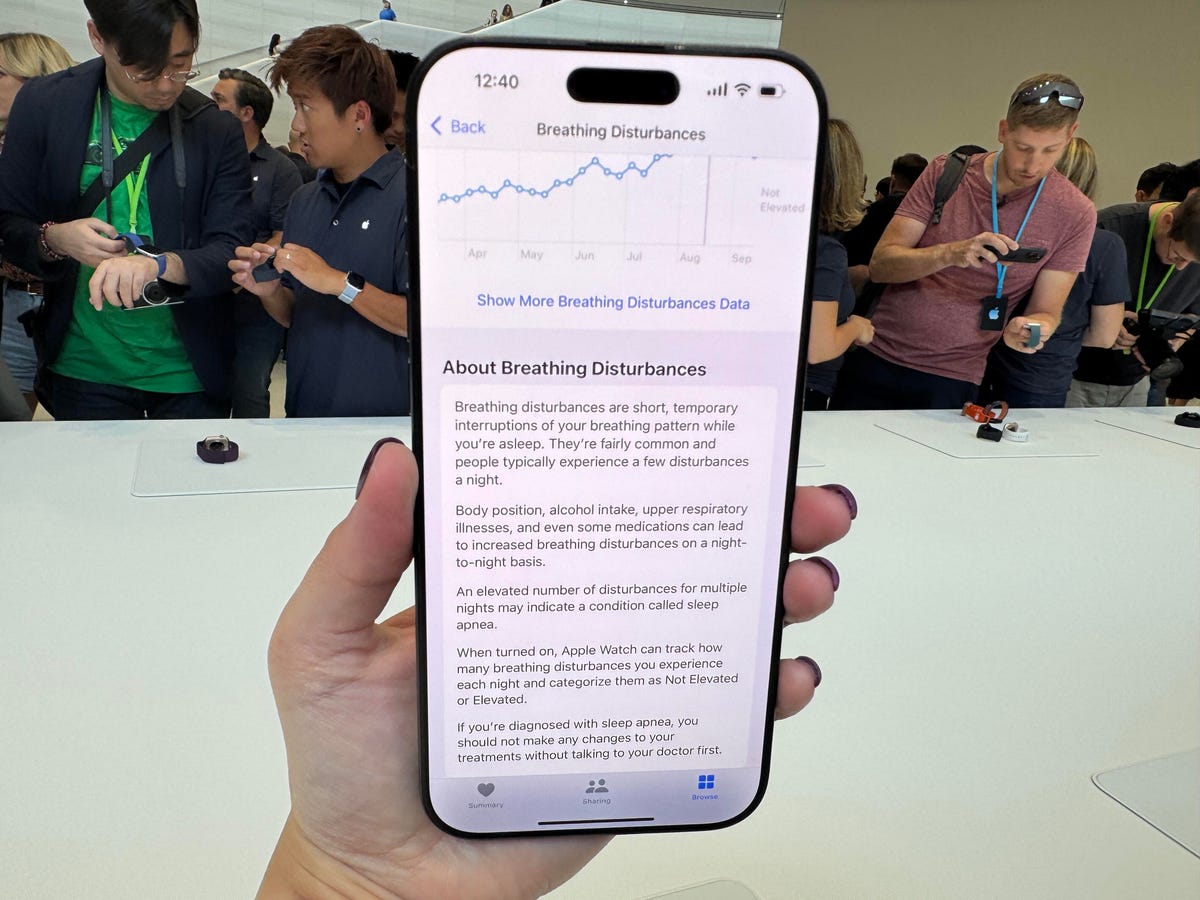
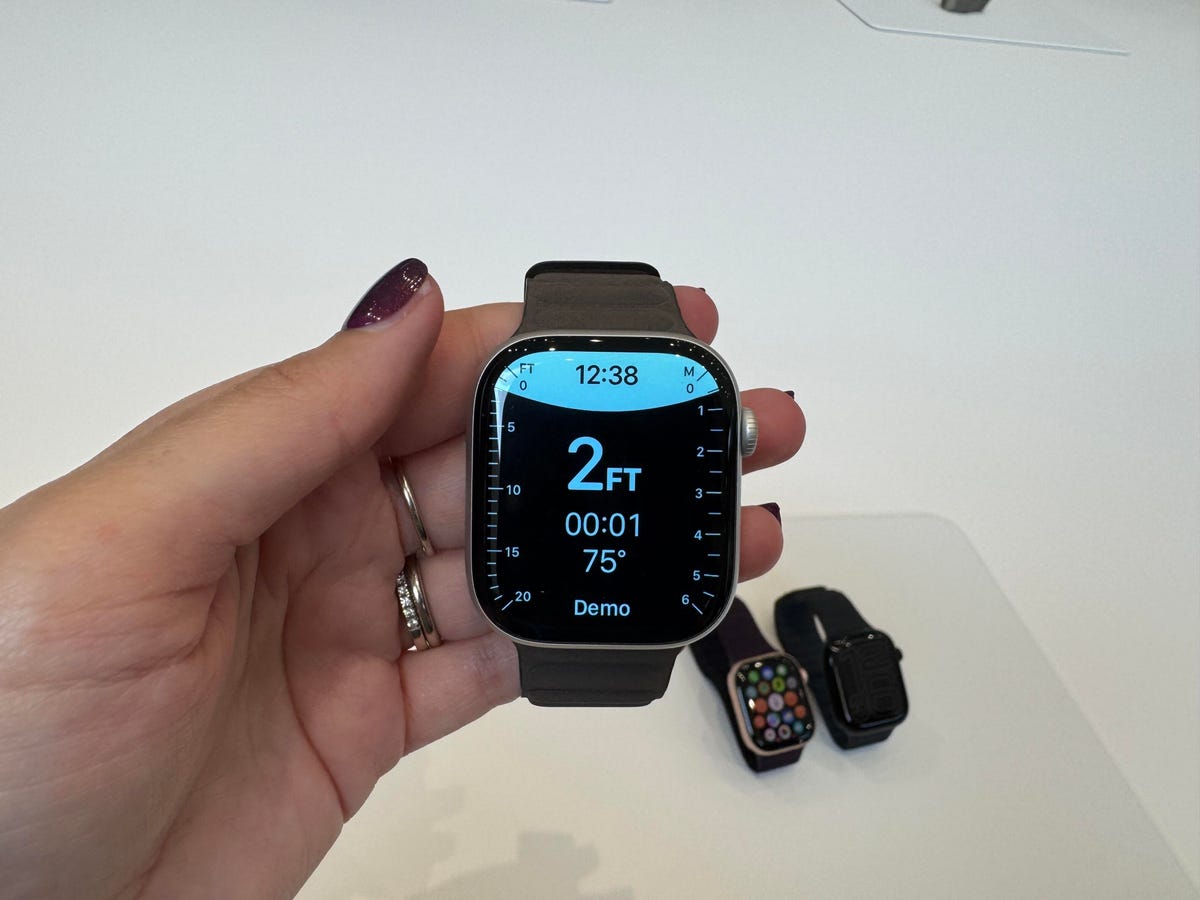
The Apple Watch is getting a glow-up for its 10th anniversary, and I got to check it out in person following Apple’s September event. The Series 10, which starts at $399 (£399, AU$649) and launches on September 20, gets a larger display, a thinner design and sleep apnea detection, making it seem like a notable step up from the Series 9.
The difference in screen size is noticeable the moment you pick the watch up, and will likely be even more apparent if you’re upgrading from an older Apple Watch. I’ll need more time with the Apple Watch Series 10 before I can say how much of a difference the larger screen actually makes, but it has the potential to be a compelling option for those who want a larger screen but don’t want to spend top dollar on the Apple Watch Ultra.
Apple typically introduces design changes and new health features to the Apple Watch, but rarely in the same generation. The Series 5 and Series 7, for example, introduced aesthetic changes like the always-on display and a larger screen, while the Series 6 and Series 8 introduced blood oxygen and temperature sensors, respectively.
Want to pre-order the latest Apple devices? We’re rounding up the best iPhone 16, Apple Watch Series 10, and AirPods 4 launch deals. Apple Watch Series 10 pre-orders are live now — see the deals here.
Apple Watch Series 10 gets a new look

The Apple Watch Series 10
The Apple Watch Series 10 is all about the new display and design. Apple says that there’s 30 percent more screen real estate for viewing more lines of text and further increasing the font size. The company says this is the largest wearable display it’s ever built, making it slightly larger than even the Apple Watch Ultra, which also got a new black finish for the Apple Watch Ultra 2 at the event. Because people often look down at their watches instead of straight on, Apple has made the display 40 percent brighter when viewed from an angle on the Series 10.
Given the larger screen size, the watch is available in new sizes: 42 millimeters and 46 millimeters. This is slightly larger than the previous sizes of 41 millimeters and 45 millimeters.
Although I’ve only used the Series 10 for a few minutes, you can clearly see the difference when you compare it to the Series 9.

The Series 9 (left) and Series 10 (right)
But what’s perhaps even more obvious is the thinner chassis. The Apple Watch Series 10 is 10 percent thinner than the Series 7, 8, and 9, and it shows. I imagine that’s a bonus for those who like to use the Apple Watch as a sleep tracker and want something a little lighter to wear at night. Apple made a few design changes to achieve this slimmer profile, including shrinking the size of the speaker system — making it 30 percent smaller — and adding a new metal back that integrates the antenna into the chassis to eliminate a layer.

The Apple Watch Series 10 (top) and Series 9 (bottom)
The watch also comes in a new polished aluminum finish that was developed specifically for the Series 10, which will be available in a new black color along with rose gold and silver aluminum. There’s also a new titanium finish that weighs 20% less than the previous stainless steel version.
The Series 10 felt a little lighter, but it’s difficult to make a direct comparison to the Series 9 without using the same straps on both watches.

Check this out: Apple introduces Apple Watch Series 10
That new back also means the watch charges faster, the company says. Apple says it reaches 80% charge in 30 minutes, similar to the Pixel Watch 3. That’s a big plus, since battery life typically lasts one to two days depending on how you use the watch, as opposed to the multi-day battery life you’d get from more sports-focused watches like those from Garmin.
The watch is powered by a new chip called the S10. Apple is also focusing on audio with the Series 10, touting clearer phone calls and the ability to play music out loud on the watch.
More from the Apple event
Apple Watch’s New Sleep Apnea Detection

The Apple Watch Series 10 can detect signs of sleep apnea.
Health is always a big focus for the Apple Watch, and this year is no different. Sleep apnea detection is coming to the Watch via a new metric that can pick up on potential breathing disturbances during the night. You can view nightly readings in the Health app, and the Apple Watch will analyze your breathing disturbances every 30 days and alert you if it finds consistent signs of moderate to severe sleep apnea. Apple is expecting FDA clearance for the feature soon.
The announcement comes after Samsung introduced sleep apnea detection on its smartwatches earlier this year, underscoring how powerful health tracking devices are evolving.
The new Apple Watch also has a built-in depth and water temperature sensor for water-related sports and activities. This is another addition that could make the watch attractive to those interested in the Ultra.

The Apple Watch Series 10 comes with a depth meter.
The watch’s launch comes exactly 10 years after Apple unveiled the first Apple Watch on September 9, 2014. What began as a niche accessory 10 years ago has grown into a major product category for Apple. The company’s wearables, home and accessories business, which includes the Apple Watch and AirPods, is larger than both its iPad and Mac divisions.
According to Apple, Apple was also the largest wearable device manufacturer in terms of shipments in the first quarter of 2024. the International Data Corporation.
The 10th-gen model feels like a stark departure from last year’s Watch, building on all the areas Apple has steadily refined over the life of the Watch, like Health, design, and activity tracking. Apple also has more competition than ever, including from new types of health trackers like Samsung’s Galaxy Ring. We’ll know more once we spend more time with one.

Check this out: Apple introduces Apple Watch Series 10




